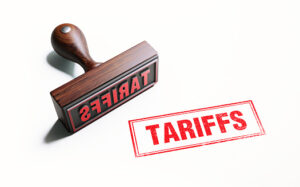The Small Cap Swing Trader Alert Archive
Below you'll find The Small Cap Swing Trader setups stacked up and ordered chronologically.March 20, 2025

March 19, 2025

March 18, 2025

Government Shutdown Impact on US Stock Market
Government Shutdown Impact on US Stock Market: What Traders Should Expect
The Looming Government Shutdown and Market Reactions
The government shutdown impact on US stock market is a pressing concern for investors as Congress faces another budget impasse. With many lawmakers having already adjourned and gone home, the likelihood of a resolution before the deadline is diminishing. If no agreement is reached by Friday, the federal government will shut down, potentially causing market volatility and economic disruptions.
How a Government Shutdown Affects the Stock Market
Historical Market Performance During Past Shutdowns
Looking at past shutdowns, the US stock market has shown mixed reactions. In the most recent shutdown, which lasted 35 days from December 2018 to January 2019, the S&P 500 initially dropped amid uncertainty but recovered as negotiations advanced. However, prolonged shutdowns can create systemic risks, leading to heightened volatility.
For a deeper analysis, check out data from CNBC on market reactions to the 2018-2019 shutdown.
Investor Sentiment and Market Volatility
The government shutdown impact on US stock market is closely tied to investor confidence. When lawmakers fail to reach a budget agreement, uncertainty spikes, increasing market fluctuations, and defensive sectors such as utilities, consumer staples, and gold often see inflows as traders hedge against risk.
Sector-Specific Risks
Financial and Banking Sector
Banks and financial institutions could experience pressure due to liquidity concerns and potential delays in federal payments. Companies like JPMorgan Chase (NYSE: JPM) and Goldman Sachs (NYSE: GS) might see short-term price swings as investors assess the economic fallout. The Federal Reserve also plays a role in maintaining stability during economic uncertainty.
Government Contractors and Defense Stocks
Halted government operations could affect firms heavily reliant on federal contracts, such as Lockheed Martin (NYSE: LMT) and Northrop Grumman (NYSE: NOC). A prolonged shutdown could delay payments and contracts, causing downward pressure on stock prices. Read more on how defense stocks react to budget issues at Defense News.
Consumer Spending and Retail Sector
If federal workers go unpaid, consumer spending may decline, impacting retail stocks such as Walmart (NYSE: WMT) and Amazon (NASDAQ: AMZN). Reduced spending power can have a ripple effect across multiple industries, amplifying economic concerns. Reports from The Wall Street Journal provide deeper insights into consumer trends during past shutdowns.
What Traders Should Watch for This Week
Congressional Developments
Since many members of Congress have already adjourned, the ability to pass a last-minute resolution is significantly weakened. Traders should monitor headlines for signs of negotiation breakthroughs or continued political gridlock. Follow updates from Reuters for the latest congressional actions.
Federal Reserve and Market Reactions
The Federal Reserve may adjust its stance if economic data weakens due to a shutdown. Rate-sensitive stocks and sectors, particularly real estate and technology, could be impacted. Keep up with monetary policy shifts at Bloomberg.
Safe-Haven Investments
During past shutdowns, gold and US Treasuries have seen increased demand. Investors looking for stability might rotate into defensive assets until budgetary clarity returns. For more on defensive trading, see market trends at MarketWatch.
Conclusion: Preparing for Potential Market Turbulence
The government shutdown impact on US stock market remains uncertain, but traders should brace for volatility. By keeping a close eye on political developments and sector-specific risks, investors can make informed decisions to navigate potential disruptions.
Retaliatory Tariffs Impact on US Stock Market
Retaliatory Tariffs Impact on US Stock Market: What Traders Need to Know
Understanding Retaliatory Tariffs and Their Market Influence
The impact of retaliatory tariffs on the US stock market is a hot topic among traders and economists. As global trade tensions rise, the potential for retaliatory tariffs could create volatility across key sectors, leading to significant shifts in market dynamics. As countries respond to new trade policies, investors must prepare for possible manufacturing, agriculture, and technology disruptions.
Sectors Most Affected by Retaliatory Tariffs
Manufacturing and Industrial Goods
Manufacturing is one of the first sectors to feel the heat of retaliatory tariffs. Companies that rely on raw materials such as steel and aluminum may face higher costs, squeezing profit margins. Industrial giants like Boeing (NYSE: BA) and Caterpillar (NYSE: CAT) could see increased volatility as trade partners impose new tariffs on US exports.
Agriculture and Farming
US farmers are often at the center of trade disputes, as agricultural exports are a prime target for retaliatory tariffs. China, for example, has previously imposed tariffs on soybeans, corn, and pork in response to US trade measures. The retaliatory tariffs impact on US stock market could drive fluctuations in agricultural stocks like Archer Daniels Midland (NYSE: ADM) and Bunge Limited (NYSE: BG).
Technology and Semiconductor Industry
Tech companies that operate globally, particularly those involved in semiconductors and consumer electronics, are also vulnerable. Many firms rely on international supply chains, and new tariffs could increase costs or limit market access. Chipmakers like NVIDIA (NASDAQ: NVDA) and Intel (NASDAQ: INTC) may face uncertainty if key trading partners introduce new tariffs.
How the US Stock Market May React
Increased Volatility and Market Corrections
Historically, trade wars and tariffs have led to increased stock market volatility. Major indices, such as the S&P 500 and Dow Jones Industrial Average, often experience sharp movements as investors react to new trade policies.
Flight to Safe Haven Assets
When uncertainty rises due to the impact of retaliatory tariffs on the US stock market, investors often shift capital into gold, US Treasuries, and defensive stocks. Companies in utilities, healthcare, and consumer staples may see inflows as traders seek stability.
Long-Term Investment Opportunities
While short-term volatility is expected, traders who understand market cycles may find buying opportunities. If history is any guide, stocks tend to recover after trade disputes settle.
Conclusion: Preparing for Market Uncertainty
The impact of retaliatory tariffs on the US stock market is a complex issue that traders must monitor closely. By staying informed about sector vulnerabilities and market reactions, investors can position themselves for potential risks and opportunities.


